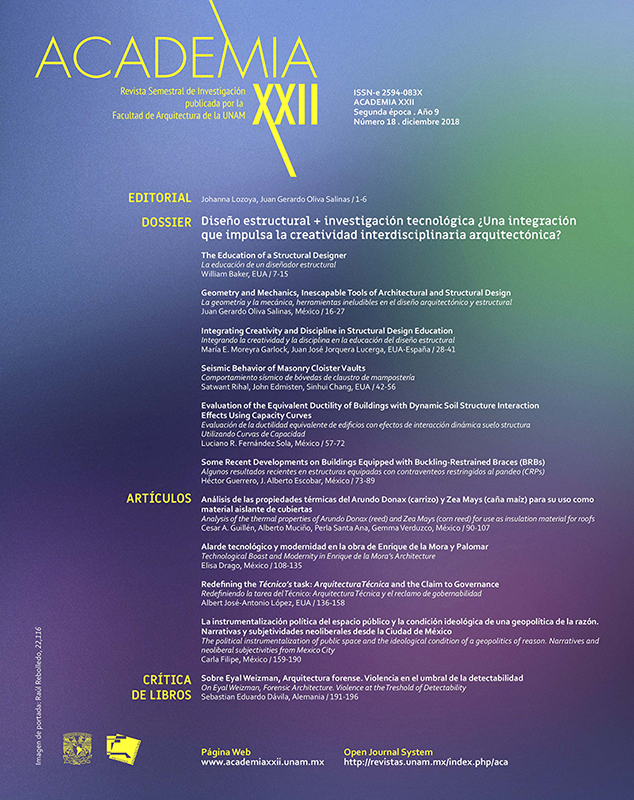Redefining the Técnico's task: Arquitectura Técnica and the Claim to Governance
Main Article Content
Abstract
This essay offers context for the establishment of the discourses of tech- nical architecture (arquitectura técnica), integral planning (plani cación integral), the appearance and rise of the técnico, and mid-century Mexican architects’ jurisdictional claims in the realms of politics and governance. I show how certain architects working as planners during the 1920’s and a younger generation of socially conscious architects emerging in the 1930’s claimed that members of the profession had a duty to work in collaborative environments and to directly engage with the state not only as technical experts or specialists, but more importantly as general man- agerial gures as a means of advancing their professional prestige, so- cial agendas, and political aspirations. Furthermore, this work introduces the role of language in the expanding and at times divergent professional trends in Mexican architecture during the period. I explore the creation and use of neologisms and politicized terms such as plani cación as well as the word “técnico” in the professionalization of architecture and its in- tersections with Mexican political society and post-revolutionary state construction. I argue that the use of these words by certain members of the profession aided some in making claims to the responsibility and right to govern and eventually contributed to a collective mobility project that sought to ll political/administrative posts with architects/planners.

